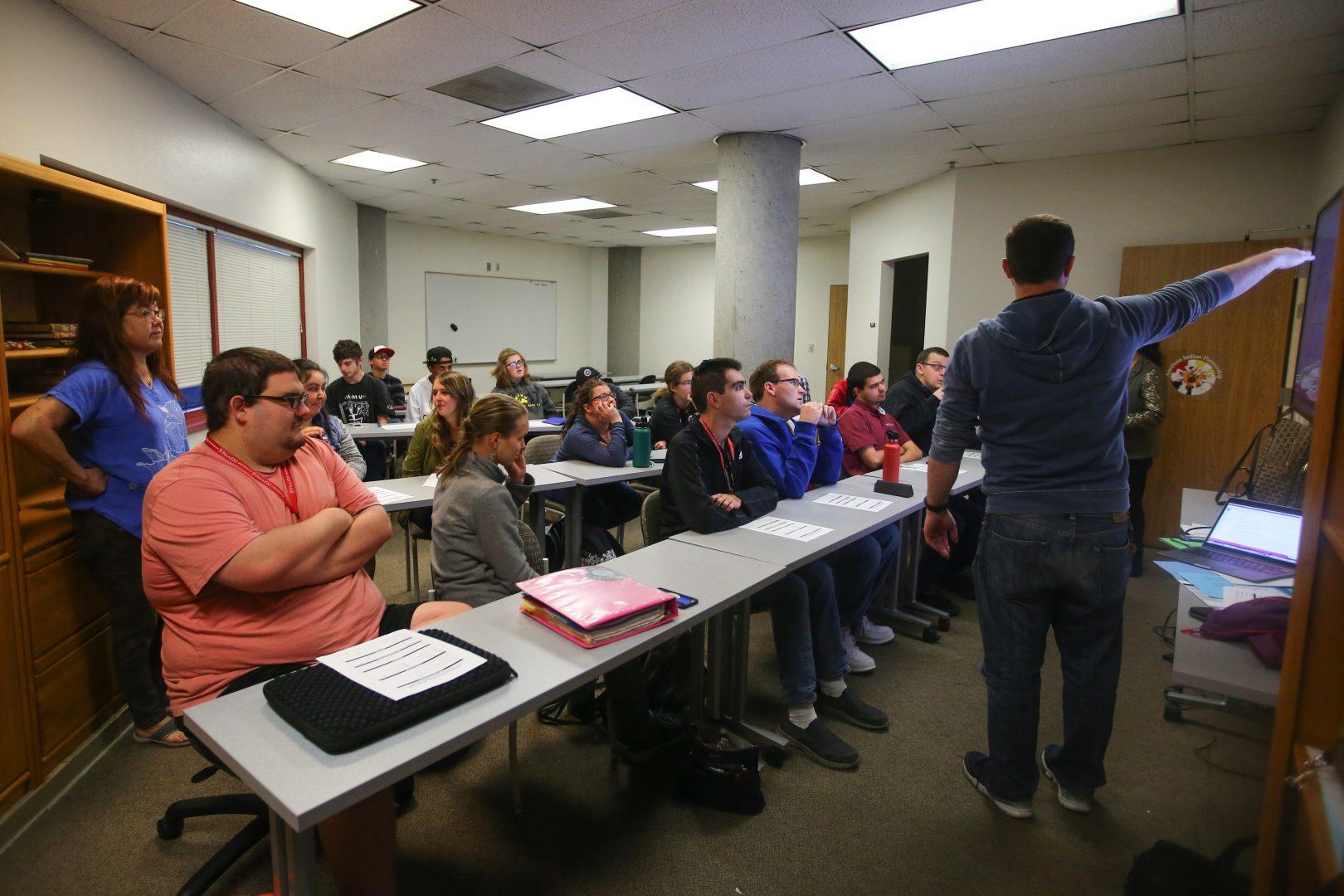Disabled students at Fresno State are able to learn about living independently, as one result of the university’s Wayfinders program.
The program, which started in the 2010-2011 academic year, is a two-year postsecondary independent living program that helps students with developmental and intellectual disabilities learn how to live independently.
Chloe Hagen is a sophomore who has been in the program for two years. She says that the program “gives students the ability to transition more easily into being independent and living independently to the best of their ability.”
The program has a residential domain, located at the Palazzo apartments, with the goal of helping students learn a variety of skills in categories such as residential, vocational, academic, social and transitions.
According to the Wayfinders program’s website, residential skills refer to “necessary life skills such as maintaining a clean living space, maintaining good personal hygiene, time management, respectful communication with roommates, meal planning, grocery shopping, and cooking.”
The website also mentions how the program can help students transition into their futures once they complete the program, in addition to helping students improve their social skills by taking part in activities and attending social events.
Students can learn vocational skills such as searching for jobs and filling out a resume. Students enroll at Fresno State through Open University and can take a minimum of three units of interest.
They also learn academic skills such as university expectations, being a successful student, time management, study styles and many more.
According to the program’s residential coordinator, Jasmine Rocha, the program’s “philosophy and expectation is that students will be supported by a team of family, friends, professionals and the student themselves to utilize their strengths, preferences, interests and needs to identify goals of competitive employment, independent living, continuing education and full inclusion in the community.”
Students apply to the program, they must attend a program tour and submit an application. Then the student will have an interview that determines if the student would be a good fit in the program.
Also, according to Rocha, applicants must be 18 to 28 years old, have a diagnosed intellectual and/or developmental disability, complete high school prior to Aug. 1, and have a desire to live independently after completing Wayfinders. Parents and guardians should be supportive of the student’s progress toward independence.
Students are also expected to accurately and independently manage medications, access their physical environment, safely function with minimal to no supervision and complete their daily needs such as bathing, dressing and feeding.
In addition, they must be comfortable with a dynamic schedule and participating in all components of Wayfinders programming, in addition to having an alternate residence for holiday breaks.
Participants are required to be currently working, volunteering, or enrolled in high school, community college, or a training program.
Shail Lopez-Ortiz is the director of the Wayfinders program.
“Wayfinders was funded by a grant from the US Department of Education nine years ago, Lopez-Ortiz said.
“We are also vendored by the Regional Centers of California to provide postsecondary education services to their clients,” Lopez-Ortiz said. “This allows us to serve students from all over California.”
When the program started, it was serving 10 students. As of right now, the program serves 44 students.
With the increase in students who are involved with Wayfinders comes some challenges.
Rocha refers to one of the challenges being the number of students that the program serves.
“I would say that we want to be able to provide services to all the students who need it but can only work with so many at a time per cohort,” Rocha said.
Lopez-Ortiz also mentions some of the expenses that come from the program.
“We are also an expensive program therefore we are not financially accessible to all who could possibly benefit from our program,” Lopez-Ortiz said.
However, the program has achieved success.
“Our data shows that given the appropriate support, students with intellectual disabilities can become productive citizens,” said Lopez-Ortiz. “90 percent of our students live on their own after graduation, and 70 percent of them have either continued on with their education or are employed.”
Hagen discussed how the program has helped her.
“The program has helped me in so many ways, but the main one I would say would be helping me with becoming confident in living independently,” Hagen said.
“Our outcomes are better than the average college student,” Lopez-Ortiz said.
Wayfinders is located on 2743 E. Shaw Ave., Suite 101, in Fresno.




